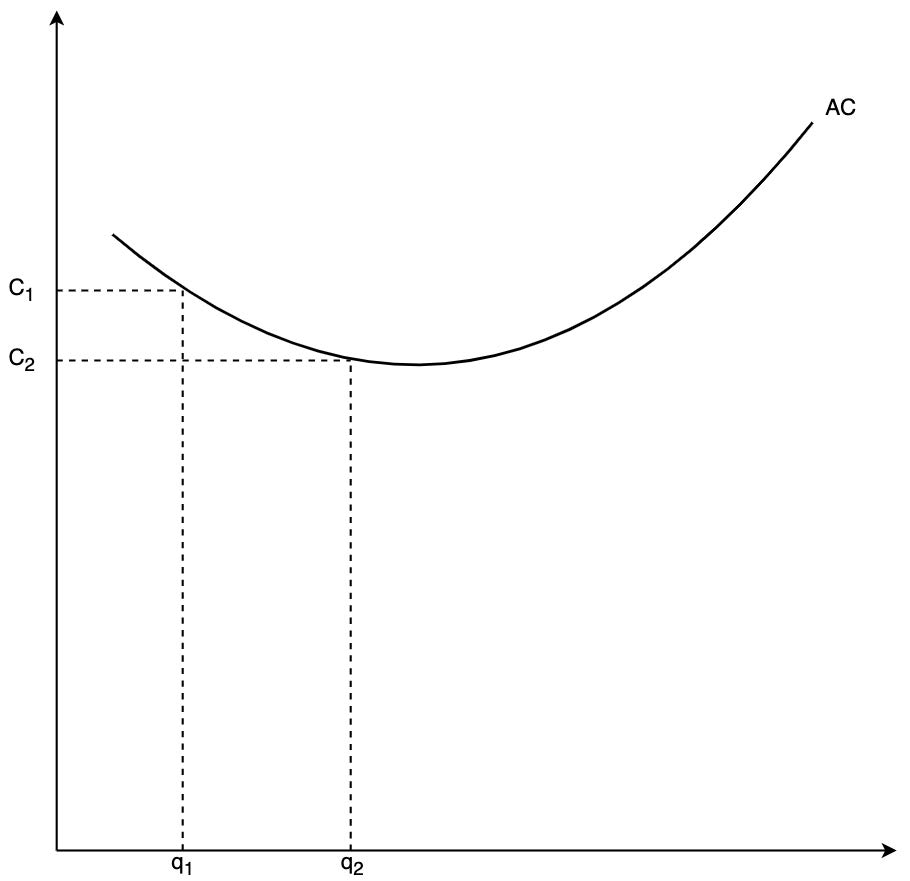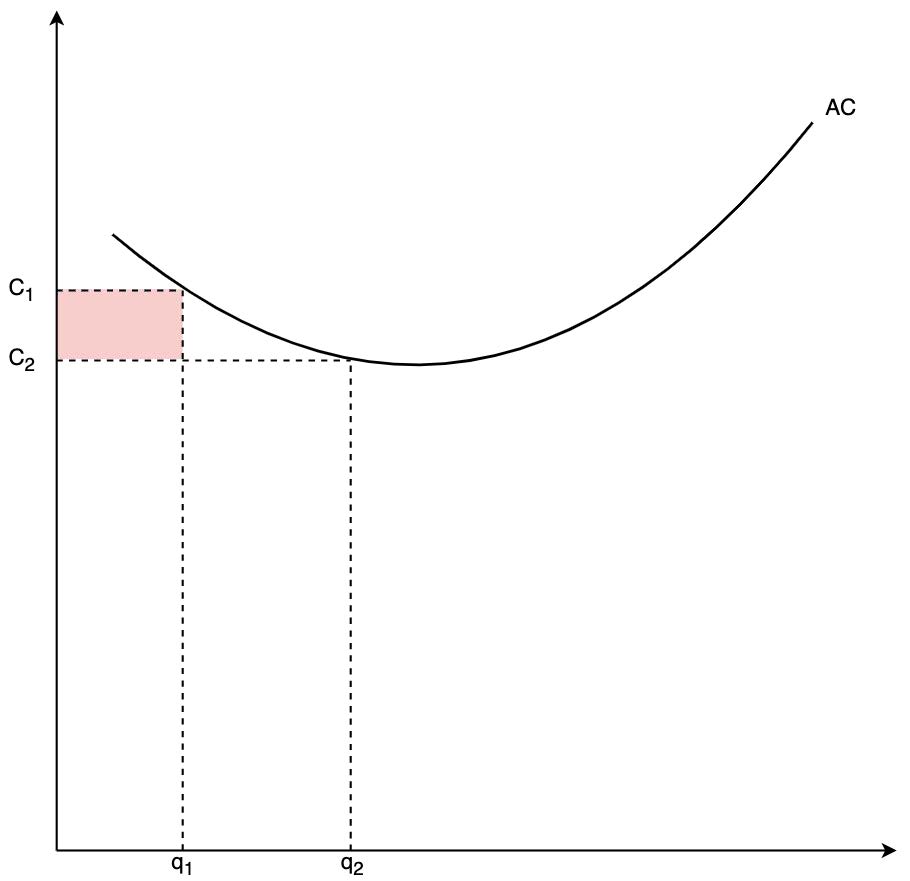Unequal Cost Defense
- Unequal costs is an allowable defense for price discrimination
- According to the Clayton Act, price differentials that “make only due allowance for differences in the cost of manufacture, sale, or delivery resulting from the differing methods or quantities in which such commodities are to such purchasers sold or delivered” are exempt from punishment
- The following are the two most commonly used for an unequal cost defense:
- Manufacturing costs
- Freight and delivery costs
- This does not apply to cost differences due to scale…
Scale cost differences
- Unequal cost deffense does not extend to all cost differences

- Imagine a firm that is currently producing \(q_1\) units and charging \(P_1 = C_1\)
- Suppose a potential large buyer would scale the firm’s output to \(q_2\)
- Recognizing that the increased scale would cause the firm’s average costs to drop, the buyer may request a price below \(C_2\)

- The firm could accept these terms and keep their price at \(C_1\) for all the other firms.
- The increased profits due to scale \((C_1-C_2)\cdot q_1\) would cover the losses from charging a lower price to the large buyer
- Final Conclusion:
A buyer who raises the total quantity from \(q_1→ q_2\) cannot be given a discriminatorily lower price because all other buyers contributed to the scale economies
Robinson-Patman treatment of big buyers
- Up until this point, we’ve only focused on price discrimination by sellers but we haven’t discussed buyers
- Why should we care about buyers?
- Big chain stores have a lot of purchasing power and could extract illegal discounts
- Big chains have become more and more common
- These illegal concessions could lead to anticompetitive outcomes
- Technically, this is forbidden by the Robinson-Patman amendment; however, it is rarely used and is very hard to prosecute
- The plaintiff bears the burden of proof that the buyer was aware that it had extracted concession illegally from the seller
- The “good faith” defense of the seller could be used by the defendant (buyer)

